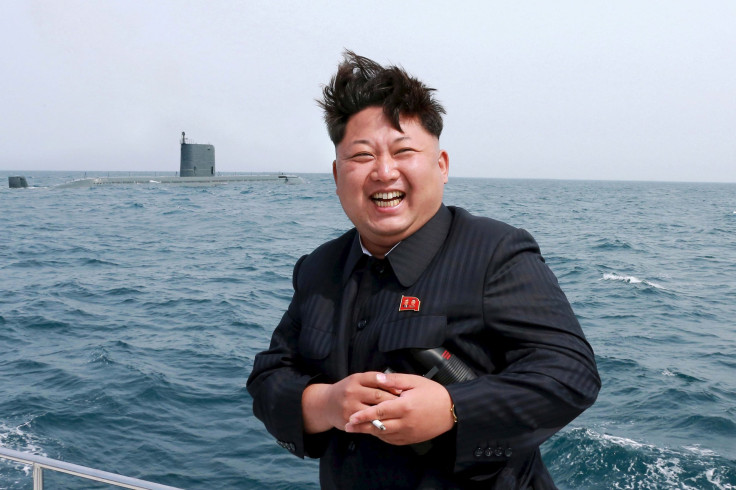North Korea Says Main Nuclear Complex Operational; Warns US

By Jack Kim and Ju-Min Park
SEOUL, South Korea (Reuters) -- North Korea said on Tuesday its main nuclear complex was operating and it was working to improve the "quality and quantity" of weapons which it could use against the United States at "any time."
The comments on North Korea's official news agency came after its space agency said late Monday it was readying a new satellite for launch, indicating it may fire an upgraded long-range ballistic missile timed around the 70th anniversary of its ruling party on Oct. 10.
Any such launch would violate international sanctions although the North insists it would be part of a space program for peaceful purposes.
The United States, which has 28,000 military personnel in South Korea, called on North Korea to "refrain from irresponsible provocations that aggravate regional tensions."
"It should focus instead on fulfilling its international obligations and commitments," White House spokesman Josh Earnest told a regular news briefing, referring to past North Korean pledges to denuclearize.
Asked if another launch could trigger more sanctions, the top U.S. diplomat for East Asia, Assistant Secretary of State Daniel Russel, told reporters "it would be a mistake for North Korea to...embark on the kind of threatening behavior and provocation that led to international sanctions in the first place."
Russel said North Korea should "unclench its fist" and the only path open to it was through international negotiations to ensure denuclearization of the Korean peninsula.
China, the North's main ally, said on Tuesday it opposed nuclear weapons development on the Korean peninsula.
"We hope the relevant parties, under the current circumstances, can do more that is beneficial to safeguarding the peace and stability of the region and the peninsula," Foreign Ministry spokesman Hong Lei said.
North Korea vowed in 2013 to restart all nuclear facilities, including the main nuclear reactor in Yongbyon that had been shuttered.
Tuesday's announcement marked its first acknowledgement since then that the plant, which has been the source of fissile material used in the country's atomic weapons program, is operational.
"All the nuclear facilities in Yongbyon including the uranium enrichment plant and 5 MW graphite-moderated reactor were rearranged, changed or readjusted and they started normal operation," the North's state-run KCNA news agency said, citing the director of its atomic agency.
NORTH KOREAN WARNING
"If the U.S. and other hostile forces persistently seek their reckless hostile policy towards the DPRK and behave mischievously, the DPRK is fully ready to cope with them with nuclear weapons any time," the director was quoted as saying.
DPRK is an acronym for the North's official name, the Democratic People's Republic of Korea. The country often makes threats against the United States and South Korea.
Innovations have been made to improve nuclear weapons "in quality and quantity as required by the prevailing situation," the director was quoted as saying.
The nuclear program of isolated and impoverished North Korea is a key source of international leverage and a means of protecting the third-generation dictatorship of the Kim family.
The country is believed to be working towards developing an intercontinental ballistic missile mounted with an atomic warhead that could hit targets in the mainland United States.
Experts at 38 North, a website run by the U.S.-Korea Institute at Johns Hopkins University in Washington, said satellite images from Sept. 6 of North Korea's main Sohae launch site showed no sign of preparations for an October launch.
"There remains little but possibly sufficient time for the North to prepare for a launch if Pyongyang follows past practices and procedures," they said in a report.
"If a launch is in the works and past practice is any guide, we would soon expect to see increased activity throughout the Sohae launch site."
A 38 North report last week said recent satellite imagery of the Yongbyon complex indicated new activity there that could be part of work to produce new nuclear material that would be a step toward adding to the country's nuclear stockpile.
"It has been nearly three years since their last nuclear test and now may be the time for them to test their evolved technology," said Park Jiyoung, an analyst at the Asan Institute for Policy Studies in Seoul.
North Korea is believed by experts to have enough fissile material to build 12 or more nuclear weapons, and is believed by U.S. and South Korean officials to be working to miniaturize a nuclear warhead to mount on a delivery vehicle.
North Korea conducted three nuclear tests between 2006 and 2013, drawing international condemnation. China joined the U.N. Security Council in a sanctions resolution after the 2013 test.
(Additional reporting by Michael Martina in BEIJING and David Brunnstrom in WASHINGTON; Editing by Tony Munroe and Christian Plumb)
© Copyright Thomson Reuters 2024. All rights reserved.





















